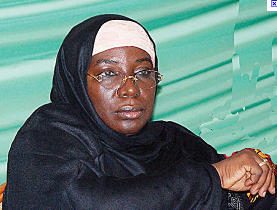The world of science would gather at the historic grounds of the University of Nigeria from February 4 to 8, 2013 as UNN hosts the first meeting of the Scientific Advisory Board of the UNESCO International Centre for Biotechnology (Category II) in Africa.
The International Centre for Biotechnology at the University of Nigeria is the first UNESCO Category II Biotechnology facility in Africa.
Nigeria and the United Nations Educational Scientific and Cultural Organisation signed the final agreement on the establishment of the Centre on October 16, 2012.
The Minister of Education, Prof. Ruqqayatu Ahmed Rufai, signed on behalf of Nigeria while UNESCO Director General, Irina Bokova, signed for the United Nations body.
The UNN Vice Chancellor, Prof. Bartholomew Ndubuisi Okolo, said the meeting of the Scientific Board is primarily to “develop operational model for start-up of the Centre.”
Okolo added: “Heads of Biotech Centres across the world will attend the meeting and seminar.
“They will avail UNN of their experiences in running similar centres across the world.”
The International Centre for Biotechnology at the University of Nigeria would focus on tropical disease research, food security as well as research and training. The Board would also examine the structure and funding of the Centre, needs and priorities of the Africa region in the focal areas versus global trends, person specification for the Executive Director of the Centre and Research Team leaders.
The Board would also look at the equipment needs of the Centre, infrastructure considerations as well as specific laboratory needs and issues of safety and containment.
A highlight of the meeting of the Scientific Board would be a one-day seminar with the theme: Biotechnology: Prospects and Challenges for Africa.
The keynote speaker will be Prof. M. Nalecz, the Director of the Division of Basic Science and Engineering and Director General of the International Basic Science Programme at UNESCO Headquarters.
Nalecz would speak on: “Biotechnology and food security in Africa.”
Fifteen subject matter experts would also speak on various areas of the seminar’s theme, according to Conference Coordinator, Prof. Jerry O Ugwuanyi.
They are tropical disease research for the benefit of Africa; biopolicy issues in biotechnology research in Africa; biosafety and ethical framework for biotechnology research and opportunities for training and innovation in biotechnology.
Previous ArticleCowbell Football Academy receives APFAN membership
Next Article Drugs: NDLEA, Lagos move against cartel


